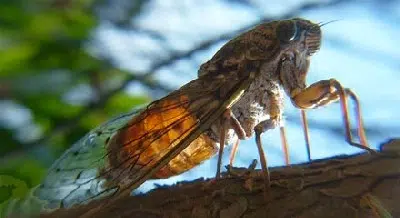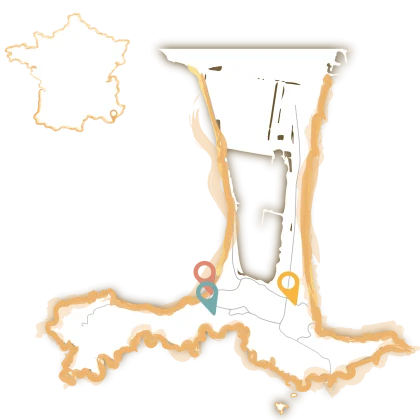La Cigale
Have you ever noticed that when you’re outdoors, insects seem to chirp, or squeak, depending on how you look at it? In Provence, these noises are more prominent. In particular, they set the tone for a fine summer’s day in the region. It’s the cicadas that produce these sounds as they play hide-and-seek in the pine forest. In this article, find out everything there is to know about cicadas. It will certainly help you to better organize your future vacations in Provence.

Cicadas sing, but why?
The cicadas of Provence sing as soon as the mercury rises above 22°. In other words, the thunderous concerts of the cicadas of Provence are sounds announcing the heat in the region. It’s mainly the males that produce this sometimes dizzying sound. This sound is known as “nuptial singing”, and is the male cicada’s way of attracting females. In a spirit of romance and to guarantee results, male cicadas often sing in chorus. That’s why sound is so much more important.
If you take the trouble to listen, you’ll find that these sounds are beautifully arranged in synchronized sequences. You’ll also notice that the intensity and rhythmic variations vary from tree to tree. This is one way of judging that the male cicada’s courtship is in full swing.
Why does a cicada stop singing?
Cicadas sometimes stop singing. But why? Simply because of the climate. Cicadas don’t like the wind. As the saying goes, the wind immediately takes the wind out of them. It’s also important to understand that cicadas sing at the top of their voices when the earth is warm. That’s why cicadas sing all day long, usually from 8.30 a.m. until the evening. Their enthusiasm for producing a romantic concert for their females is conditioned by the temperatures of the environment in which they live. This means that at the end of the day, when the temperature drops, they stop singing.
If the male finds his female, he also stops singing. Of course, once you’ve won the hand of the princess, you immediately stop courting her. It’s only natural!
Cicadas sometimes stop singing when visitors get too close. This is also the case when they feel in danger, when a predator approaches. It’s a kind of survival hiding place for them.
Is singing really the right word?
We’re talking about singing cicadas from La Fontaine’s fables. Indeed, everyone knows the misadventures of the cicada who sang all summer long. Since then, we’ve all thought that the cicada sings. But it’s actually percussion rather than singing.
Contrary to popular belief, cicadas don’t rub their wings to produce the sound we hear. They actually use two cymbals inside their abdomen. It’s these cymbals that clatter up to 900 times a minute under the effect of a muscle.
What kind of plants are found in Provence?
There are almost 16 species of cicada in the Mediterranean. Three of them live only in Corsica. The most common species in Provence is the gray cicada, also known as the “Cicada orni”. It measures around 3 to 4 centimetres and is the noisiest of all. It is also difficult to detect on a tree, as it is well camouflaged.
In terms of the volume of sound produced by cicadas, it is important to note that this is conditioned by the insect’s enthusiasm. As we’ve already seen, cicadas are louder in hot weather. Their song can reach up to 90 decibels. That’s why some people can’t stand the sound they make.

How long does a cicada live?
Cicadas generally live all summer long. In fact, once the cold season sets in, this marks the end of the reproduction period. Females lay eggs in a plant, then die.
The larvae fall to the ground and bury themselves after a few months. They grow in the soil for at least 2 years, then dig their way out. These are usually holes in the ground.
And every summer, this reproduction cycle is continually renewed.

